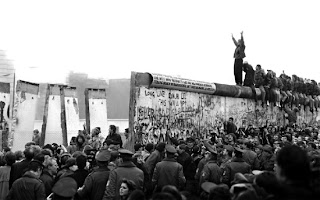Dear students, greetings from Atlanta! Arrived here in Georgia this afternoon after an uneventful flight. The bag of pretzels was exceptionally small, and the coffee at 33,000 feet was actually quite tasty. It is not
Dunkin' Donuts coffee, but it will work.
I'm here in Atlanta representing SBS at the
Powerful Learning Practices seminar. It is all about utilizing technology in the classroom, so I thought I'd blog to keep in touch (what else?). I wanted to podcast a message for all of you, but my microphone is back in the Lone Star State.
I hope everyone survived Ike with minimal discomfort and damage. I'll follow up with some Ike stories of my own on Tuesday before we play review jeopardy.
Today I had some great conversations so far about curriculum development and collaborating across disciplines, and what kinds of teaching strategies my colleagues have employed over the years.
Also had a great conversation with the Director of Academic Affairs about teaching full time the last 7 years with 6 of those engaged in doctoral study. During a few of those years I taught 5 classes each day, and two nights a week (with the exception of 1 semester) took graduate seminars.
Some background: I finished an MA in history in May 2001, and began teaching full time in August 2001. I spent 2002-05 taking courses and then essentially writing the dissertation since March 2007, when I took my final research excursion to New England.

The short of it is that it has been an amazingly rich time of interplay between teaching and research/writing. In the conversation earlier today I recounted how I bring teaching questions now to my archival research (or participant-observation)--essentially thinking about how I could teach using primary documents--and while I think of course about content, argument, structure, etc. with my writing, I also think deeply about communicating ideas--in other words, does my writing pass the muster of the scholarly guild
and can one of my sophomore or junior or senior students pick it up, read it, and at least get the main arguments and structure? Does my writing possess a readibility, or is it laden with obtuse language, arcane references, and dense jargon? And of course the use of technology has been an ever present tool in the mix of it all. And yes, I've read each and every one of those books you see in the picture; some twice.
Such a schedule--teaching and going to school in the midst of a growing family--is insanely busy (how thankful I am for a patient and understanding wife!), but has been profoundly transforming and intellectually stimulating.
All these thoughts and observations came flooding back amidst the course of the conversations I had today. I anticipate it will continue tomorrow during the
PLP seminar at
The Lovett School. I will try to write another post or two tomorrow.
I'm looking forward to meeting other teachers from across the country, seeing what they do, learning new things, and contemplating more ways to collaborate.

I leave you with this thought:
Connectivity is a term often used in the context of communications technology and mathematics, but it strikes me as an equally important term for 21st education. It's a term that's collaborative, generative, and participatory.
Would you describe your educational experience as dependent upon connectivity? If so, to what extent? If not, why? Is connectivity an integral part of one's educational experience? Why or why not?









































